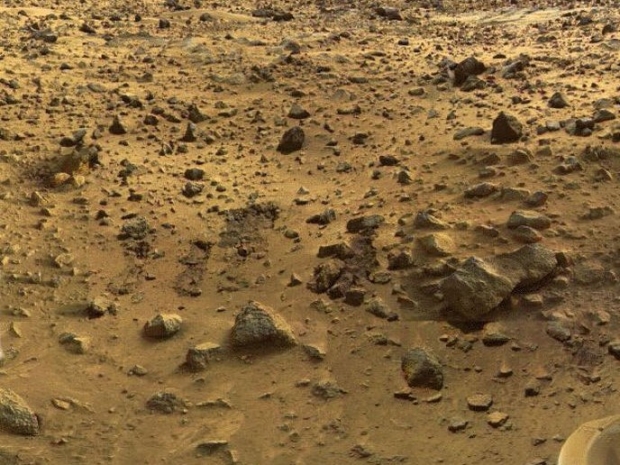Venus is so hot and its atmosphere so pressurised that robots and chips have low shelf lives. They also have to be heavy to be protected.
Phil Neudeck, an electrical engineer at NASA's Glenn Research Centre has a cunning to create simple unprotected robots on Venus that can measure wind, temperature, chemistry, pressure, and seismic waves. To do that they need chips that are not going to fry for several months.
Talking to Science, he said that the boffins will not create the world's fastest chips, nor the most complex chips, but they have to be super-durable.
Engineers have been quietly building heat resistant electronics out of a new type of semiconductor, with an eye to placing sensors inside jet engines.
Under extreme heat, silicon becomes a pure conductor which makes it useless for computing. Silicon carbide, a hybrid of silicon and carbon commonly used as an abrasive in sandpaper and for growing fake diamonds has a bigger bandgap than silicon, which means its electrons can absorb much more energy before it becomes a conductor.
It functions as a semiconductor at much higher temperatures but it does not melt so you can't use the same production techniques on the wafers.
Researchers, led especially by Cree, an upstart electronics company, devised ways to grow usable silicon carbide crystals more than 150 millimetres in diameter.
Neudeck and his colleagues set out to turn the material into fully fledged computer circuits, assembling more and more complex chips in their clean room.
"We're really trying to recreate Moore's law, but to do it for high temperature", Neudeck says. In a year, they increased the number of transistors on their silicon carbide chips 10-fold.
However they are still pretty retarded for chips. A modern silicon chip can contain seven billion transistors while Neudeck’s Venus chips have 175 and are based around a transistor design rather than conventional microelectronics. It is a gloried pocket calculator but has the complexity of many of the early scientific missions flown back in the '60s and '70s.
Neudeck says, they're more powerful than the chips on Apollo flight computers. "You really can do science."
However the Venus simulation stress tests proved the chips’ values. Placed in an extreme planetary simulation, the a 24-transitor generation of Neudeck's chip survived 21 days.
Published in
PC Hardware
Building a chip to resist the fires of Venus
Not even a Nvidia chip gets that hot
NASA boffins are working on a chip which can handle the superheated, globally warmed heat of Venus.
Tagged under

